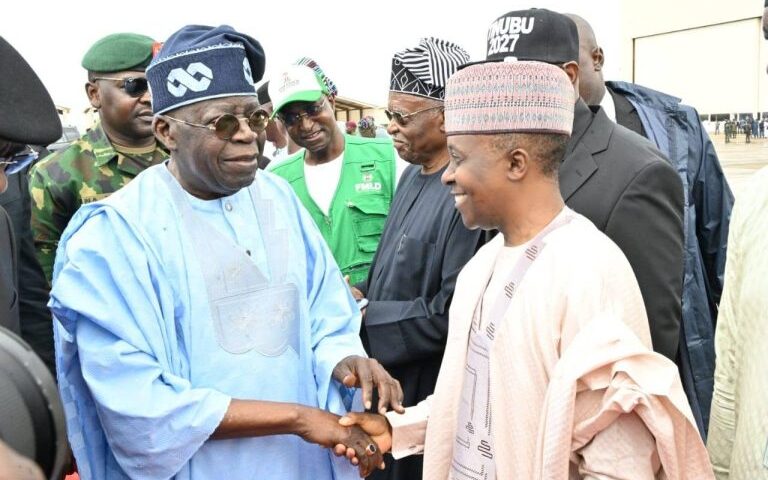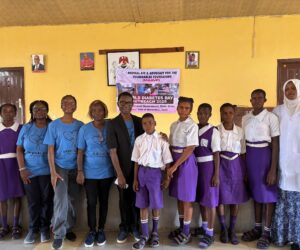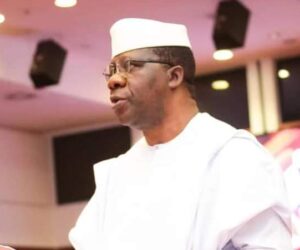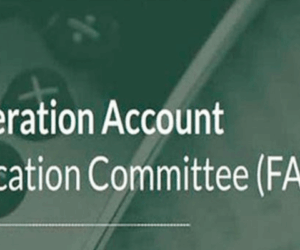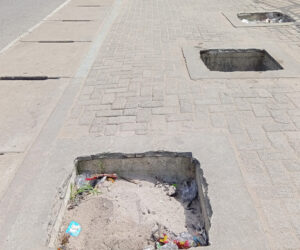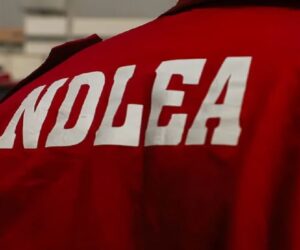On Thursday, the National Council of State granted a state pardon to former Kano lawmaker Farouk Lawan.
Mr Lawan was jailed for taking bribes while serving as the chairman of a House of Representatives ad-hoc committee investigating the fraud around the fuel subsidy regime in 2012.
The former lawmaker is among four ex-convicts President Bola Tinubu pardoned: Anastasia Nwaobia, Hussaini Umar, and Ayinla Alanamu. Presidential spokesperson, Bayo Onanuga, said, “They were pardoned to enable them to integrate into society, having demonstrated sufficient remorse.”
Mr Lawan was convicted of receiving a $500,000 bribe from Femi Otedola, a businessman. Mr Lawan was accused of demanding $3 million to remove Mr Otedola’s firms from the list of companies indicted for fuel subsidy fraud.
He represented the Bagwai/Shanono Federal Constituency of Kano State at the House of Representatives from 1999 to 2015.
Ironically, the former lawmaker was called Mr Integrity for his assertive anti-corruption posturing in the House.
Mr Lawan’s ad hoc committee indicted Mr Otedola’s Zenon Oil and Gas Ltd and many other firms for fraud.
The committee said Zenon Oil had fraudulently obtained over $230 million from the Central Bank of Nigeria (CBN) to import petrol under the subsidy scheme, but did not import the fuel.
Mr Lawan later removed Zenon Oil’s name from the list of indicted firms after receiving $500,000 from Mr Otedola as the first tranche of a negotiated $3 million bribe.
Both men later claimed that they gave or received the money as evidence of a bribe against each other.
However, Mr Otedola said he reported to Mr Lawan’s demand to the State Security Service (SSS), which asked him to play along. He said the SSS organised a sting operation that captured the legislator collecting the bribe on video.
Mr Lawan, on his part, insisted that he collected the money as evidence against Mr Otedola, but admitted he did not report to any law enforcement agency.
The office of the Attorney-General of the Federation, though a private prosecutor, Adegboyega Awomolo, a Senior Advocate of Nigeria, charged Mr Lawan with the first two counts under section 18(1)(a) of the Corrupt Practices and Other Related Offences Act, 2000, and the third count under section 17(1)(a) of the same law.
Journey through courts
In her judgement delivered on 22 June 2021, the judge, Angela Otaluka of the FCT High Court, convicted Mr Lawan on all three charges filed by the government.
In February 2022, the Court of Appeal affirmed Mr Lawan’s conviction but exonerated him on two counts and reduced his seven-year imprisonment to two years.
Subsequently, the Supreme Court affirmed the conviction.
Last October, Mr Lawan was released from prison after serving five years.
With his pardon, Mr Lawan joined the politicians jailed for corruption but controversially pardoned by the political authorities.
In 2018, former President Muhammadu Buhari pardoned two former state governors, Joshua Dariye of Plateau State and Jolly Nyame of Taraba State, serving prison terms for stealing public funds.
The former governors were among 159 convicted persons whose pardon was approved by the Council of State in the Buhari administration.
Presidential pardon or societal pardon?
In his time in the House of Representatives, Mr Lawan led a group known as the ‘Integrity Group’, which fought for the removal of the first female Speaker, Patricia Etteh, and her replacement by Dimeji Bankole.
His arrest and conviction in the bribery scandal destroyed his reputation and political career in his home state of Kano, where he was influential.
Following his release from prison last year, Mr Lawan was speculated to have dumped the opposition People’s Democratic Party (PDP) for the ruling All Progressives Congress (APC) as a first step towards a political comeback.
The presidential pardon means Mr Lawan can return to active politics, but observers say he also needs the pardon of the public, his conviction having tarnished his reputation and standing in society.
My hope is renewed – Lawan
Moments after announcing his pardon, Mr Lawan expressed gratitude to President Tinubu, describing the gesture as divine mercy.
In a statement titled “My Hope Is Renewed, Mr President,” he said the pardon signified a new beginning in his life and a reconciliation with destiny.
“Mr President has cast a warm blanket over me, pulling me back from the harshness of yesterday’s cold,” he said. “A day like this is not for a long treatise. I lie prostrate, utterly humble in my heart and entire being, grateful for the mercy Allah (SWT), through Mr President and my country, has shown me.”
Mr Lawan said his faith in God and the nation remained unshaken throughout his ordeal.
“During the eclipse at noon of my life, a path designed by destiny, my family, friends, and associates stood by me through thick and thin, their light became my singular, unfailing beacon. I remain eternally indebted to you,” he stated.
He said the experience had taught him lessons in humility and reflection, noting that the presidential pardon had renewed his sense of purpose.
“Throughout those moments of sober reflection, my faith in the greatness of our Fatherland never wavered, nor did my resolve to contribute to it ever weaken. A re-dedication to the ideals of Nigeria is upon me. My hope is renewed,” Mr Lawan said.
Council of State
The Nigerian Council of State is an organ of the Nigerian Government as stipulated by Third Schedule Part 1B of the 1999 Constitution (as amended).
The Council’s membership includes the President, who is Chairman; the Vice-President, who is Deputy Chairman; all former Presidents of the Federation and all former Heads of the Government of the Federation; all former Chief Justices of Nigeria; the President of the Senate; the Speaker of the House of Representatives; all the Governors of the states of the Federation; and the Attorney-General of the Federation.
The Council has the power to:
(a) advise the President in the exercise of his powers with respect to the:-
(i) national population census and compilation, publication and keeping of records and other information concerning the same;
(ii) prerogative of mercy;
(iii) award of national honours;
READ ALSO: Despite heavy campaign, Trump loses Nobel Peace Prize to Venezuelan politician
(iv) the Independent National Electoral Commission (including the appointment of members of that Commission);
(v) the National Judicial Council (including the appointment of the members, other than ex-officio members of that Council); and
(vi) the National Population Commission (including the appointment of members of that Commission); and
(b) advise the President whenever requested to do so on the maintenance of public order within the Federation or any part thereof and on such other matters as the President may direct.

